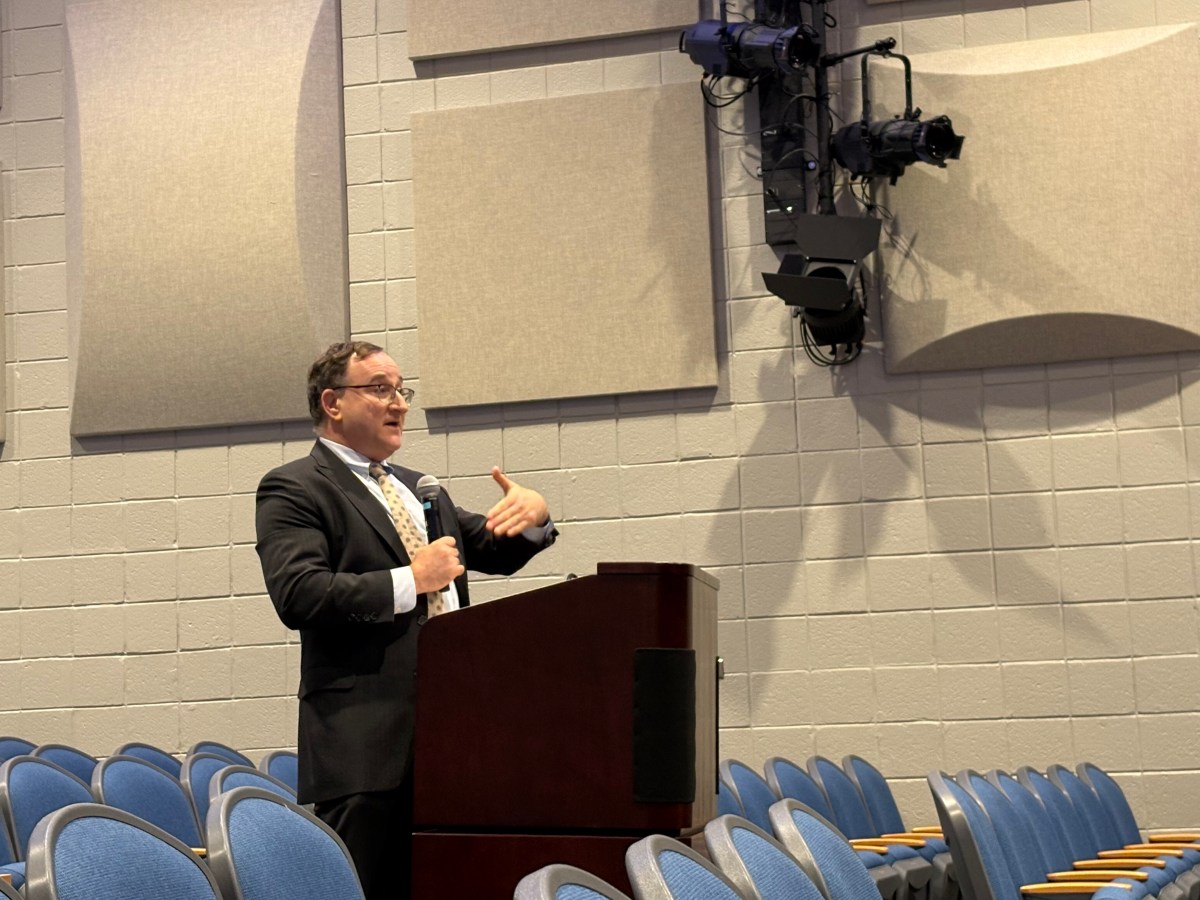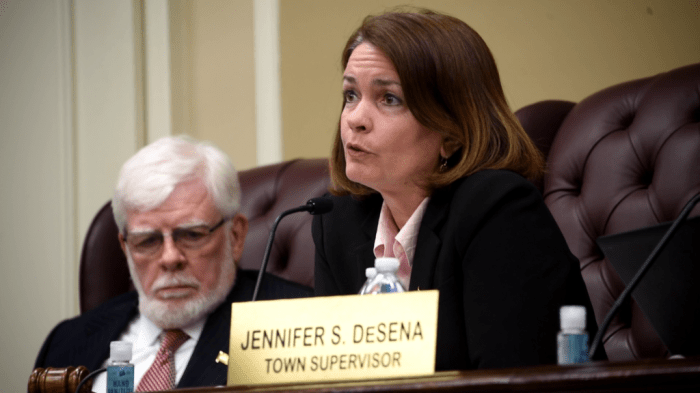The Port Washington Board of Education discussed regionalization during its Nov. 19 meeting, agreeing to release a letter outlining its concerns within the next few weeks.
Regionalization is a state education initiative to bolster educational equity and operational efficiency across school districts. The purpose is to address disparities among districts and financial challenges.
The board was presented with an update on the proposal from District Counselor Howard Miller.
“The state has recognized that the regulation was not the most artfully drafted of regulations,” Miller said. “Because of this, the state has gone to great pains to make certain clarifications.”
According to Miller, the state has made it clear that regionalization does not divest school districts of local control, does not require districts to share resources with another district and does not require districts to accept students from other districts.
What districts do need to do, according to Miller, is fill out a needs and strengths assessment by Dec. 6. Afterwards it is incumbent upon the superintendent of the Boards of Cooperative Educational Services to facilitate negotiations with other districts.
The proposal has been met with pushback from several Long Island officials and school districts. On Nov. 22, Long Island elected officials, school representatives, and residents gathered at a rally Thursday to denounce the state program.
Critics have said that regionalization will force school district compliance, taking away local control from school districts. Under state law agencies must accept comments from the public for at least 60 days after the proposal is published.
“We understand the concerns that have been raised. But this is not a mandate to do anything this board does not want to do” Miller said.
After Miller’s presentation, several members of the board raised concerns about the proposed initiative.
Board president Adam Smith questioned why the state felt the need to make the regulation an emergency act if all that districts needed to do was fill out what he described as a few surveys.
In addition, he complained about the New York State Education website’s layout, saying it was confusing to read. Members of the board also argued that the needs and strengths assessment is mandatory.
The Board was not against sharing resources with other districts. Members, however, objected to the idea of being forced to do so.
Despite the state’s assurances that the initiative will not supersede local control, Board members still raised concerns about some of the language within the proposal and expressed a desire to take advantage of the comment period to write a letter requesting certain amendments in their proposal’s language.
While the board agreed that taking legal action, as 14 Fourteen Long Island school districts have, was a step too far. However, they did agree that having their objections, as well as what they like about the proposal, formally written would be beneficial. The comment is expected to be released soon and will be made available to the community.
The letter, drafted by Trustee Deborah Brooks, and released on behalf of the board outlined several concerns they had with the proposal.
“Port Washington takes the position that the regulation, as presented, should not be adopted and that, in the event it is
adopted, the language of the regulation accurately reflects the intent and purpose that NYSED has explained outside of the
regulation itself, as described below. the letter said. “It is of paramount importance that the final regulation allows voluntary participation by school districts, without penalty, and that ultimate decision making be held by the local school boards of education.”
While the board acknowledges in the letter that regionalization, as conceived, is not about merger, consolidation, or annexation, and does not mandate that Port Washington must participate in particular activities under a final regionalization plan. The board still found areas of the proposal to be concerning.
“Nevertheless, Port Washington believes that this initiative – as written in the proposed regulation — misses the mark from the very inception of the planning process stage. The proposed regulation — as written — is highly problematic. Accordingly, for the reasons stated below, Port Washington strongly opposes the proposed adoption” the letter said.
The letter presented four objections to the current proposal: first, that it is a duplication of existing efforts and practices in the district; the letter also argued that the plan is not entirely voluntary and imposes more unfunded mandates on the district, it also mentions that Port Washington is not experiencing the decline in enrollment seen in other districts and finally that planning process and various follow-up steps will erode local control.
The letter also requested that the state should engage in proper stakeholder engagement, immediately withdraw the emergency rule, and refrain from renewing it in Dec. The letter also requested a clarification in the language of the regulation as well as the creation of an opt-out or opt-in provision for districts.
“We believe we are achieving, and can continue to achieve, that excellence, without having to participate in a
Regionalization Plan, including the planning process stage. What we do need, however, is our fair share of funding from
the state. We have made that known to NYSED through other channels.” the letter said.
The next meeting of the board is Dec. 17.
This story has been updated to include the letter from the Port Washington Port of Education submitted to the state education department on Nov. 24 and released to the public on Nov. 25 outlining the board’s concerns with the regionalization initiative.
































